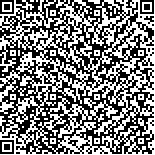| 摘要: |
| 野外定期采样分析植物生长区根际沉积物和无植物生长区域对应深度的沉积物, 研究了海三棱藨草对石油污染滩涂根际沉积物中微生物种群特点、生长条件和脱氢酶活性的影响。结果表明, 无论植物是否存在, 一般细菌数量均在春季或夏季达到高值。黄杆菌和假单胞菌在春季达到最高值, 微球菌和无色杆菌在夏季达到最高值, 而在秋季或冬季达到最低值; 微球菌和假单胞菌在冬季达到最低值, 黄杆菌和无色杆菌在秋季达到最低值。 并且在植物存在的条件下, 微生物的数量均比无植物存在时提高 1—2 个数量级; 植物使混合菌的生长条件发生改变, 使其能适应更恶劣的微观环境(pH 6.5, 耐受温度为 36℃), 且其达到最大生长量的时间降低至 30h, 同时脱氢酶的活性提高 2—3 倍。 |
| 关键词: 海三棱藨草, 盐沼植物, 石油污染, 根际沉积物, 微生物群落特性 |
| DOI:10.11693/hyhz201106020020 |
| 分类号: |
| 基金项目:宁波市自然科学基金项目, 2006A610080 号, 2007A610056 号; 宁波市海洋渔业局项目, 9-19 号, 2006.09—2009.09; 宁波大学科研基金项目, XK200562 号, XY0600062 号; 宁波大学人才引进项目, 2005.10—2007.10; 宁波市 4321 人才工程项目, 2007.03—2011.03; 王宽诚教育基金会资助, 2011—2012; 浙江省教育厅项目, Y201017988号; 宁波市政府湿地调查项目, 201102号; |
|
| SALINA PLANT’S INFLUENCE ON THE COMMUNITIES CHARACTERISTICS OF MICROBIAL IN TIDELAND POLLUTED BY THE PETROLEUM |
|
ZHU Ming-He1, ZHU Wen-Cai1, PANG Yan-Hua2, YU Xu-Bo1, NIU Cheng-Fei1, HUANG Shao-Tang3, YAN Xiao-Jun1, DING De-Wen4
|
|
1.Ningbo University;2.Liaoning Entry-Exit Inspection and Quarantine Bureau;3.Ningbo Entry-Exit Inspection and Quarantine Bureau;4.Key Laboratory of Science and Engineering for Marine Ecological Environment, First Institute of Oceanography, State Oceanic Administration
|
| Abstract: |
| The Scirpus mariqueter’s influences on microbe communities characteristics, growth conditions and dehydrogenase activity of rhizosphere sediment in tideland polluted by petroleum were researched, depending on field periodical sampling for sediment of plant zone and no plant zone. The results showed that the microbe quantities generally reached to the top values in spring or summer, whether the plant was in existence or not. For example, Flavobacterium and Pseudomonas reached the top value in spring, but Micrococcu and Achromobacter did in summer, furthermore, they reached to the lowest value in autumn or winter. Micrococcus and Pseudomonas reached the lowest values in winter, whereas Flavobacterium and Achromobacter did in autumn. The microbe quantities boosted 1 or 2 order of magnitude in the condition of plant existence, compared to no plant existence. The plant changed the growth conditions of mixed bacteria, which forced them to adapt to worse microcosmic environment (pH 6.5, temperature 36℃), reduce time of the biggest growth quantity to 30 hours, and enhance 2—3 times of dehydrogenase activity. |
| Key words: Scirpus mariqueter, Salina plant, Petroleum pollution, Rhizosphere sediment, Microbe communities characteristics |
